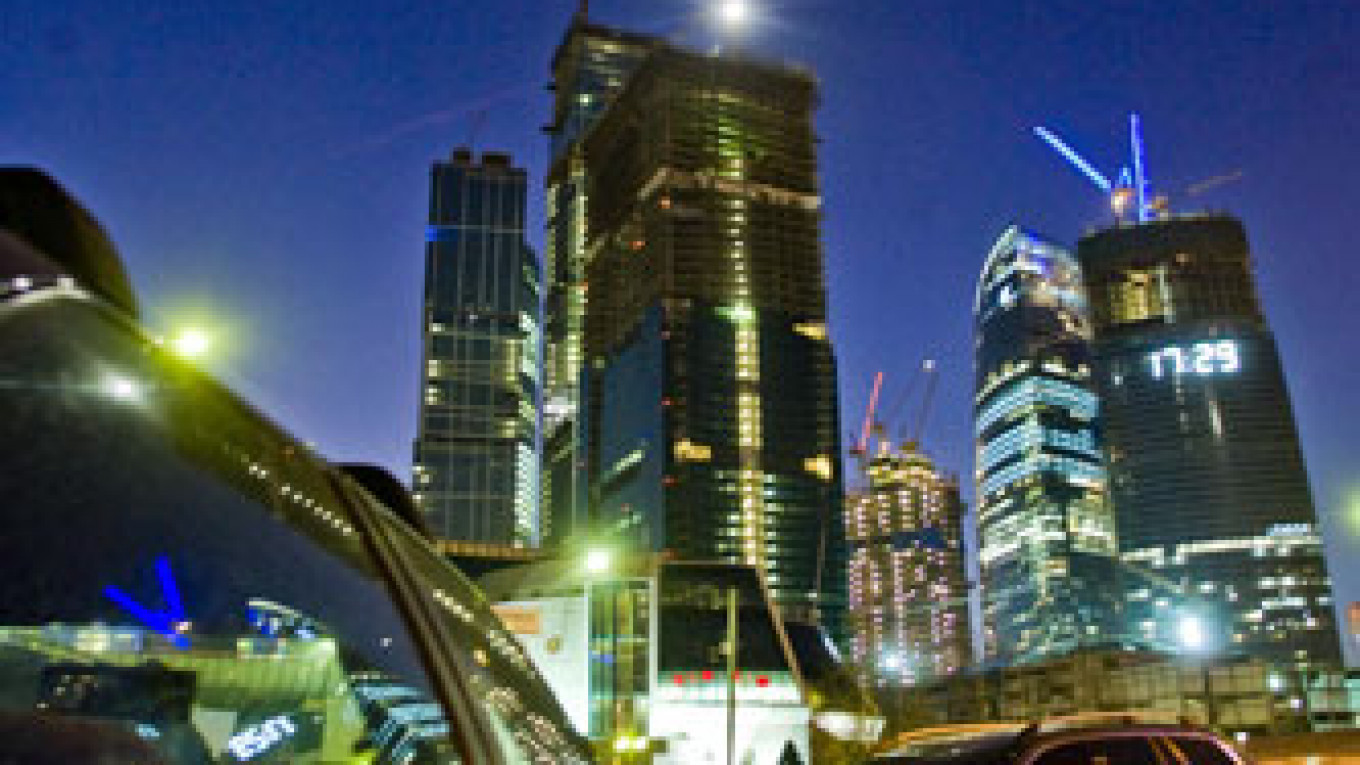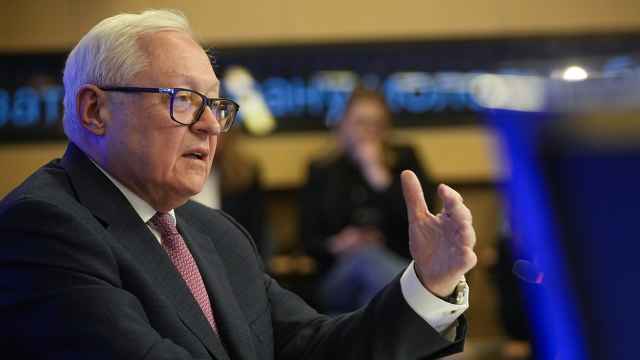Up, up and up. Then way, way down. And up again. In steps. That’s how Moscow’s commercial real estate market has performed over the past five years, as the capital’s real estate boom collided with the global economic crisis, the market bottomed out and a recovery began this year. Now the question is, where is the market headed in 2011?
The answer is up some more, real estate insiders said. More and more businesses are filling unused offices, while construction equipment is revving up on stalled sites. Meanwhile, brand-new locations, such as the business center at 8 Preobrazhenskaya Ploshchad and the Legend of Tsvetnoi office and apartment complex on Tsvetnoi Bulvar, are seeking to sign tenants. The upward arrow may be a jagged one, however, as the city adjusts to its new mayor, Sergei Sobyanin, and his at least initially more conservative approach to development.
There are signs of improvement in Moscow’s commercial market. One is the decrease in empty offices in high-end office buildings, a trend that will continue in 2011, analysts said.
High-end office vacancy is now estimated at under 20 percent by analysts interviewed for this article. Jones Lang LaSalle’s corporate clients chief in Moscow, Andrei Postnikov, estimated the current vacancy rate in Class A offices to be 17 percent. Next year, “we could see the vacancy rate go to 10, 12 percent, even less,” he said.
The figures indicate a marked uptick. Real estate consultant Colliers International put vacancies for Class A offices in June at nearly 20 percent, while Jones Lang LaSalle said 30 percent of Class A offices were vacant around the start of this year.
Now, companies are hiring and seeking bigger or just spiffier places for their employees. Some are buying or leasing that space in existing buildings, while other companies are springing for spanking-new digs.
About 800,000 square meters of office space could be finished by the end of 2011, said Olga Pobukovskaya, the office property director of Colliers International’s Moscow branch. That figure is up from roughly 500,000 square meters expected to be finished this year. In 2009, office space was just a fraction of those figures, she said.
Pobukovskaya predicted that major projects, such as Don-Stroi Invest’s planned Oruzheiny retail and office center near Olimpisky Prospekt, would be pushed ahead.
“We expect closings from interesting deals that have started at the end of this year,” she said. In general, the capital’s commercial market will be more active in 2011, as large companies look to move their employees into newly constructed offices in 2012.
Expansion of Western hotel chains took place in the capital in 2010, with Rezidor Hotel Group opening its second Radisson-brand hotel in April. Western hotel expansion is expected to continue in the capital next year.
The warehouse market also has experienced growth this year, with about 996,000 square meters rented and purchased through September, which is greater than the full-year figure for 2009 of 939,000 square meters, according to Jones Lang LaSalle research.
Retail also is making a comeback. Postnikov said there was an increase in retail space transactions this year. Retailers “didn’t have the appetite to acquire new space last year...they were kind of frozen,” he said. Now, stores ranging from small food shops to the gigantic Mall of Russia near Moskva-City are opening their doors. Mall of Russia is slated to open in December.
Postnikov said a push to complete Moskva-City itself — the business center that was a pet project of ousted Mayor Yury Luzhkov — is also possible. If completed according to expectations, the collection of gleaming high-rises will offer roughly 1.3 million square meters of office space.
That figure would be roughly 10 percent of Moscow’s office stock, Postnikov said, adding that the office space at Moskva-City won’t cause a glut. In fact, there is currently an undersupply of office space, and, compared with cities in the United States or Europe, Moscow’s amount of space for white-collar workers is lagging, he said.
Construction at Moskva-City was interrupted in late 2008, just as the crisis swept the country.
Just-installed Mayor Sobyanin has weighed in on Moskva-City, calling it an “urban planning mistake,” Moskovsky Komsomolets and other media reported. He said “what’s done is done,” however, and called for city planning to deal with the expected increase in traffic around the site. Plus, Sobyanin has already waded into other areas of commercial real estate. For instance, he said he wants to ban the construction of office centers and malls within the Third Ring Road.
His ambitious tactics for combating the city’s snarled traffic, which his team published online and which include limiting new building construction to allow for wider traffic lanes, could also change the city’s real estate dynamics.
As for the questions left by Luzhkov’s absence, Postnikov said no one "can really have a good answer." Next year will be the first in nearly two decades that the capital rings in the new year without the one-time mayor and his real estate mogul wife, Yelena Baturina.
“But we anticipate some changes and probably some further limitations with regard to big developments in central Moscow,” Postnikov said.
Pobukovskaya also noted Sobyanin’s desire to alter the commercial real estate market in Moscow’s center, as well as his anti-traffic campaign.
Regarding the effects of Luzhkov’s ouster on the commercial market, Pobukovskaya said, “Tricky question. Nobody knows!”
A Message from The Moscow Times:
Dear readers,
We are facing unprecedented challenges. Russia's Prosecutor General's Office has designated The Moscow Times as an "undesirable" organization, criminalizing our work and putting our staff at risk of prosecution. This follows our earlier unjust labeling as a "foreign agent."
These actions are direct attempts to silence independent journalism in Russia. The authorities claim our work "discredits the decisions of the Russian leadership." We see things differently: we strive to provide accurate, unbiased reporting on Russia.
We, the journalists of The Moscow Times, refuse to be silenced. But to continue our work, we need your help.
Your support, no matter how small, makes a world of difference. If you can, please support us monthly starting from just $2. It's quick to set up, and every contribution makes a significant impact.
By supporting The Moscow Times, you're defending open, independent journalism in the face of repression. Thank you for standing with us.
Remind me later.






